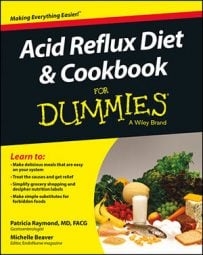When most people think about acid reflux, they immediately think of heartburn and use the words interchangeably. Although reflux and heartburn are related, they’re not the same thing.
Heartburn is actually just a symptom of acid reflux. Heartburn is an uncomfortable or painful burning sensation in the chest that usually occurs after a meal. Just how much it hurts varies not only from person to person, but also from instance to instance. It can range from a mild irritation to an intense, searing pain.
Here’s the easiest way to remember the difference between heartburn and acid reflux: Heartburn is the sensation, while acid reflux is the movement or action that causes the sensation.
The term heartburn can be somewhat misleading. First, heartburn has nothing to do with the heart; it’s actually related to the digestive system, specifically the esophagus. Second, heartburn doesn’t necessarily burn; it can be a general pain or a feeling of tightness in the chest.
Many patients have rushed to the hospital thinking they were having a heart attack, only to find out it was actually an acute case of heartburn. These people have a hard time believing that a feeling that strong can “just” be heartburn.
If you think you’re having a heart attack, take it very seriously and call 911 immediately. Symptoms of a heart attack can be subtle at first. Don’t try to “tough it out.” One symptom of heart attack is chest discomfort or pain. This may feel like pressure, fullness, or squeezing in the middle of your chest. The discomfort or pain may come and go.
Other symptoms include body pain, anxiety, stomach illness, lightheadedness, sweating, and shortness of breath. Bottom line: Assume the symptoms you’re experiencing may be heart-related until a physician has ruled it out.
Most people will experience at least one case of heartburn in their lifetimes. Lucky for them, occasional heartburn usually isn’t anything to worry about and often can be cleared up with an antacid.
If you experience heartburn on a regular basis, you probably have acid reflux. Just like heartburn, acid reflux varies significantly in severity and frequency. It can be a daily problem that impacts your everyday life, or it can be a mild, occasional nuisance with little to no impact on your activities.
Severe, long-term cases of heartburn can lead to a diagnosis of gastroesophageal reflux disease (GERD). The condition is about as pleasant as the term. Go ahead and say it, “GERD.” Rhymes with turd.
Usually patients with GERD suffer from heartburn or other reflux symptoms at least twice a week. If you find that you’re suffering from reflux on a regular basis, go to your doctor. Untreated reflux can develop into GERD, which can lead to more serious, long-term health issues.

